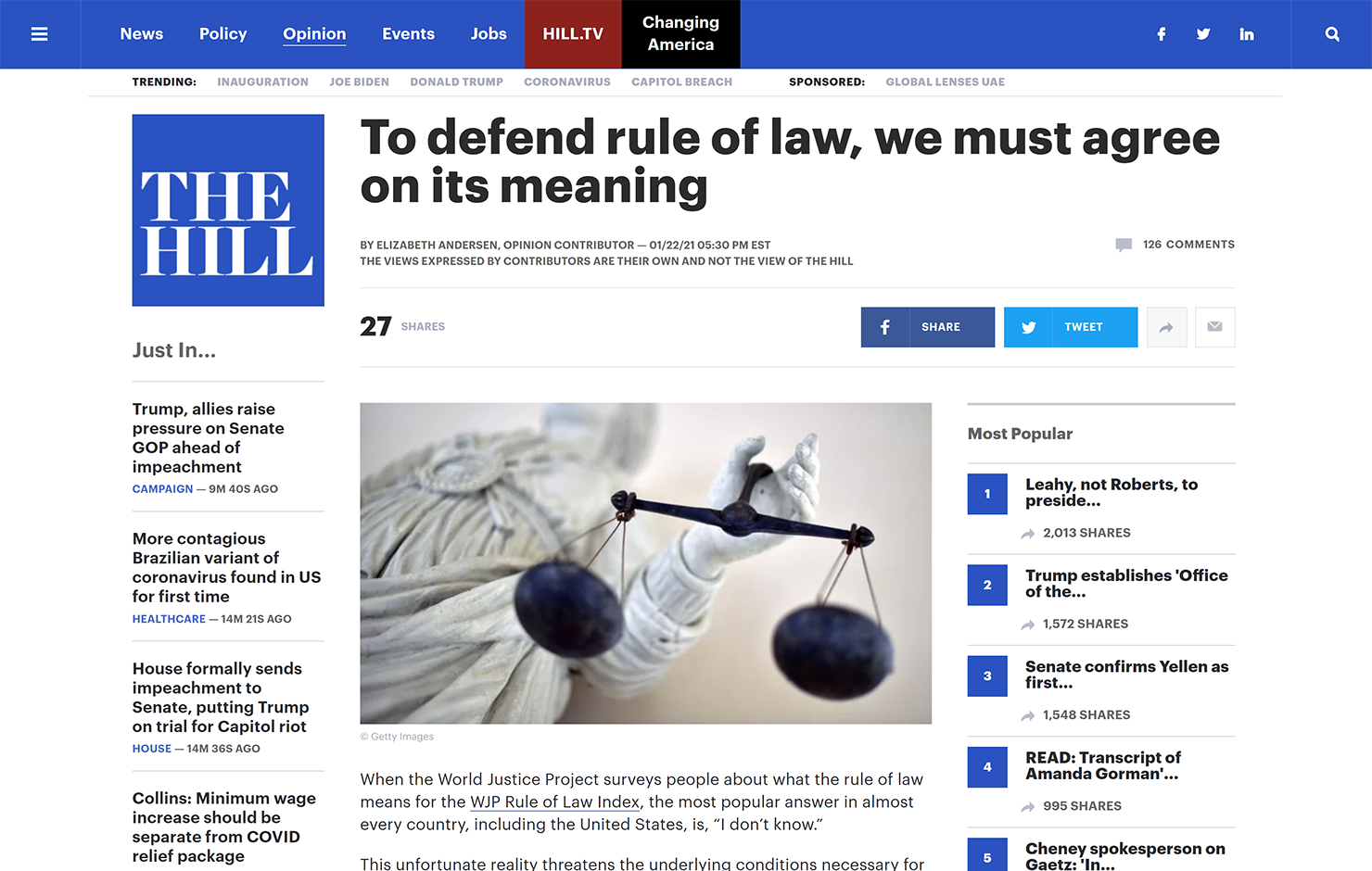
 In an op-ed for The Hill, WJP Executive Director Elizabeth Andersen discusses the importance of a shared understanding of the rule of law in order to uphold its ideals.
In an op-ed for The Hill, WJP Executive Director Elizabeth Andersen discusses the importance of a shared understanding of the rule of law in order to uphold its ideals.
Read an excerpt below and find the full op-ed here: "To defend rule of law, we must agree on its meaning"
When the World Justice Project surveys people about what the rule of law means for the WJP Rule of Law Index, the most popular answer in almost every country, including the United States, is, “I don’t know.”
This unfortunate reality threatens the underlying conditions necessary for a community governed by the rule of law: a common understanding of its principles and a shared commitment to its ideals.
In recent weeks, the United States has endured an historic rule of law test—a disputed presidential election culminating in a violent attack on the U.S. Capitol by those intent on preventing a peaceful and lawful transition of power. While ultimately our system withstood the assault, a fundamental misunderstanding and manipulation of the meaning of the rule of law enabled this crisis. Many of the rioters who stormed the Capitol building and committed numerous federal crimes thought they were upholding the rule of law, egged on, for example, by robocalls from the Rule of Law Defense Fund. Until we build broad consensus about what the rule of law is and why it matters, U.S. rule of law will remain vulnerable.






